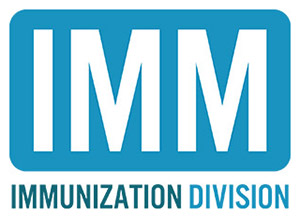
Immunization
Bureau of Communicable Disease
Font Size:
- Immunization Home
- COVID-19 Vaccination Provider Support
- Outreach and Education
- ImmPRINT
- ImmPRINT Manual
- Immunization Quality Improvement for Providers (IQIP)
- Vaccines for Children Program
- Investigations and Cases
- Measles Disease
- Hepatitis A Disease
- Flu & Pneumonia Vaccines
- Perinatal Hepatitis B Program
- Whooping Cough (Pertussis)
- Adult Immunization Providers
- Continuing Education (CE)
- Immunization Resources
- Immunization Schedules and VISs
- International Travel Information
- Vaccine Information for Adults
- Alabama Adolescent And Adult Vaccination Task Force
- Contact Us
- Communicable Diseases
- Coronavirus Disease 2019 (COVID-19)
- Mpox
- Public Health Educators
Mumps Disease
What is Mumps Disease?
Mumps is a contagious disease caused by a virus. Mumps is best known for causing puffy cheeks and swollen jaws. The virus spreads and affects multiple areas in the body, especially in adults
What are the symptoms of Mumps?
- Symptoms usually appear 16-18 days (some times up to 25 days) after you are infected with the virus.
- Most common symptoms include:
--Fever
--Headache
--Muscle aches
--Tiredness
--Loss of appetite
--Swollen and tender salivary glands under the ears on one or both sides (parotitis) - Some patients may experience very mild or no symptoms at all.
- The most common complications from mumps affect the brain, testicles (in males), and ovaries (in females).
How does mumps spread?
- Mumps is spread from person-to-person.
- It spreads through saliva or mucus from the mouth, nose, or throat of an infected person when they:
--Coughs, sneezes, or talks
--Shares their used drinking and eating cups, plates, spoons, forks, or knives
--Touches items or surfaces without washing their hands, and then someone else touches those same surfaces and then touches their mouth or nose.
--Mumps spreads before the salivary glands begin to swell and up to five days after the swelling begins.
What is he best way to prevent getting the mumps?
- The best prevention is receiving the MMR (measles, mumps, and rubella) vaccine, but no vaccine is 100% effective.
- Cover your cough.
- Wash your hands.
- Stay home if ill.
Where can I find more information about mumps disease?
- As your doctor or call your local county health department.
- Email the Alabama Department of Public Health, Immunization Division, at immunization@adph.state.al.us
- Go to cdc.gov and type 'mumps disease' in the SEARCH box.
Mumps Vaccine
Who should get mumps vaccine?
- Mump vaccine in only available in measles, mumps, and rubella (MMR) vaccine.
- Infants and children should get 2 doses.
- Students in post-high school education should get 2 doses.
- Adults born after 1956 should bet 1 dose.
- Women of childbearing age should get 1 dose before getting pregnant.
- Healthcare staff should get 2 doses.
- International travelers should be up-to-date for MMR before traveling.
What are the vaccine side effects and risks?
- Getting MMR vaccine is much safer than getting measles, mumps or rubella disease.
- The risk of MMR vaccine causing serious harm, or death, is extremely small.
- A vaccine, like any medicine, is capable of causing side effects or a severe allergic reactions.
- Mild problems usually occur 6-14 days after vaccine include:
--Soreness where the shot was given.
--Fever
--Mild rash - Moderate problems include:
--Seizures caused by fever
--Temporary pain or stiffness in the joints
--Temporary low platelet county
--Severe problems are so very rare, it's hard to tell if MMR vaccine caused them:
--Serious allergic reaction, deafness, long-term seizures, coma, and lowered consciousness, and permanent brain damage.
Where can I find more information about mumps disease or mumps vaccine?
- Ask your doctor or contact your local county health department.
- Email the Alabama Department of Public Health, Immunization Division, at immunization@adph.state.al.us
- Go to cdc.gov and type 'mumps disease' in the SEARCH box.
- Read, print, and share our Mumps Flyer to learn more about pertussis disease and vaccines.
CDC Resources
Page last updated: June 17, 2024




